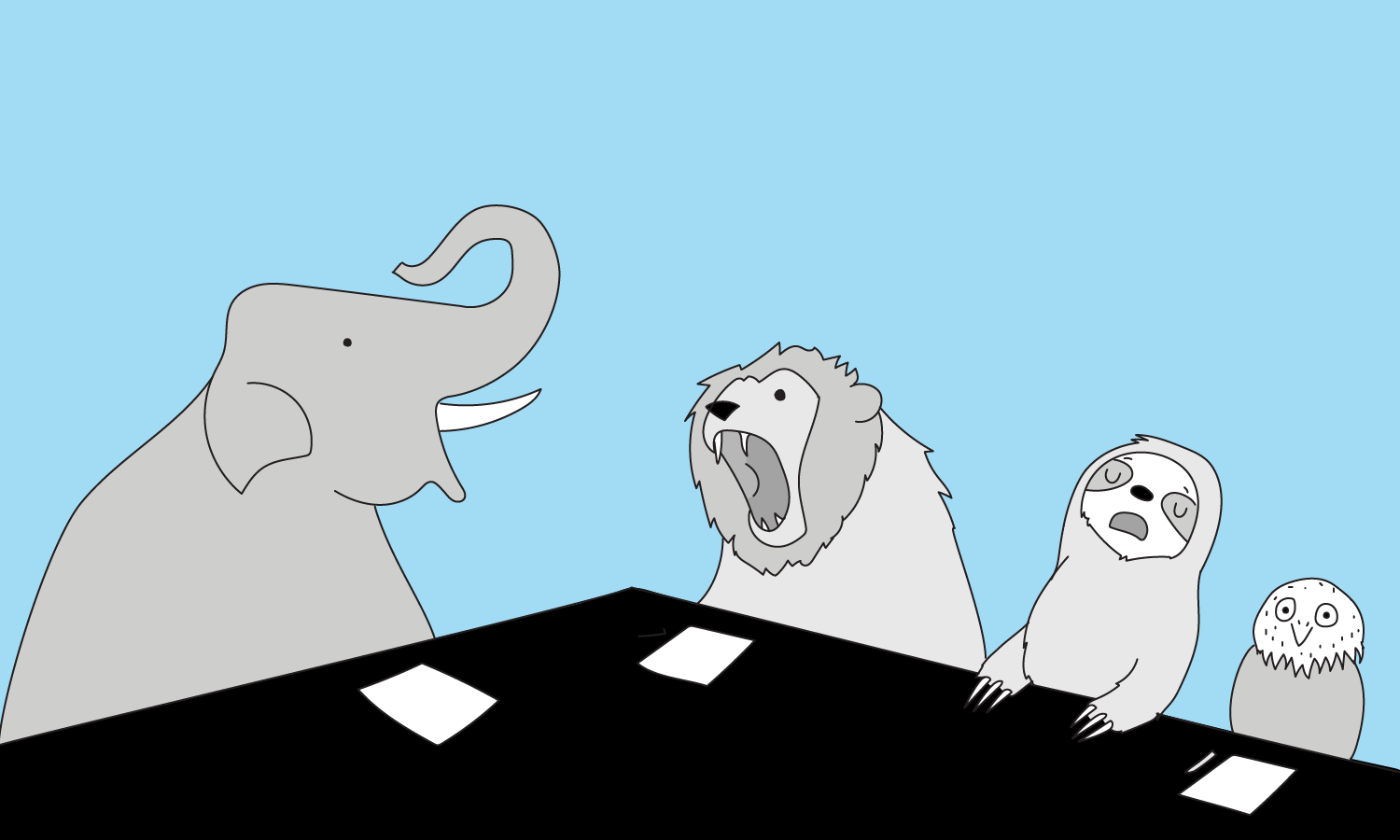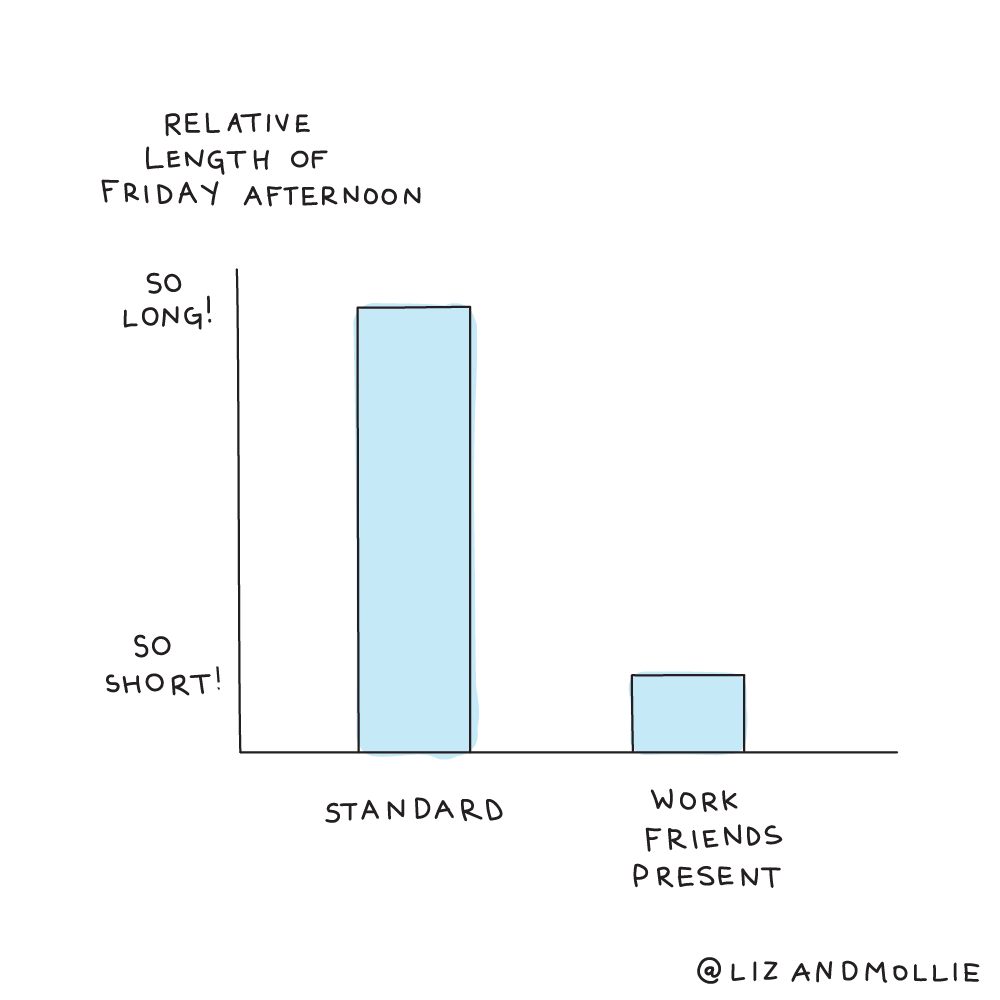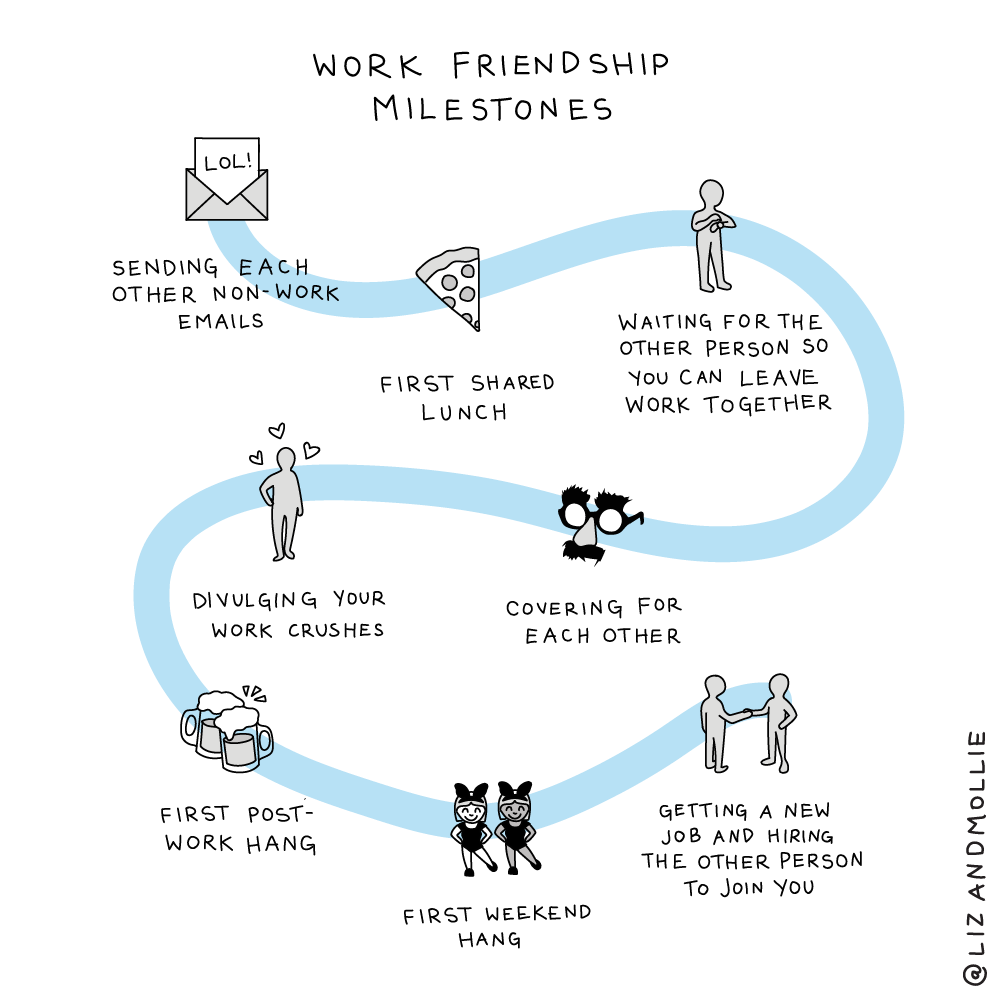Why You Should Invest in Real Friendships at Work

Choice, meaning, and opportunities for learning all make work more enjoyable. But on rainy Friday mornings when we’re low on sleep and irritated with our managers, research suggests our real motivation isn’t a what—it’s a who. People with friends at work find their jobs more satisfying, and are less affected by stress.

Work friends are very important, and different types of work friends can fill different needs. We’ll cover three: the confidante, the inspiration, and the frenemy. Understanding how and why you relate to these people will help you commit appropriate mental resources to developing workplace relationships that can bolster your motivation (and maybe even help get you out of bed on that Friday morning).
1. The confidante
This is the work friend who will commiserate when you’ve had a rough conversation with your boss, rush you to the bathroom when you’re about to cry, and give you honest feedback when you need it most. Confidantes make us feel like we can conquer the world—or at least ace a presentation and finally ask for that raise.
But these days, it can be tough to find a confidante at work. Because we tend to switch jobs more frequently, it can be hard to invest as heavily in workplace relationships. To counter that and find your confidente, start by building trust and sharing stories with a coworker you gravitate toward. Or initiate a get-together: People who provide social support to others—by organizing an office event or inviting colleagues to lunch—are ten times as likely to feel engaged at work than people who keep to themselves, says Shawn Achor, author of Before Happiness.

2. The inspiration
The inspiration is your platonic work crush: you don’t want to be with them, you simply want to be them.
This person can either be a colleague you deeply admire or a formal mentor. You probably could've guessed this, but mentors can help improve job satisfaction, teach us how to be effective leaders, and steer us towards the right career moves.
“They’ll bring a field to life for you. They’ll teach you how to find quality material in that field,” advises economist and author Tyler Cowen.
Pro tip: The best way to find a mentor isn't to ask, “Will you be my mentor?” but to start by asking someone for specific advice, then slowly work toward building a relationship.
3. The frenemy
We tend to choose friends who are similar to us, especially at work. But the more we have in common with someone, the more likely we are to compare ourselves to them. The frenemy is both our friend and our benchmark within the organization.
Another pro tip: Don’t feel guilty about experiencing the occasional twinge of envy! Frenemies account for almost half of all important members of our networks.

While frenemy relationships are linked to greater stress, they also motivate us to work harder. In a survey of consultants, those who had a frenemy made more of an effort to succeed and network. Leverage the positives of a tricky relationship by partnering on an important project; you’ll try harder to prove yourself and might end up with a real friendship.
But even the best work friendships have a dark side. Sometimes being close with our colleagues can leave us emotionally exhausted. Managing relationships we care deeply about while giving critical feedback or rushing to meet deadlines takes effort. Talk to anyone who has worked at a startup where coworkers describe themselves as a family, and you’ll inevitably hear how tiring it can be.
And for every friendship, there is also someone outside the friendship. The closer the relationship between two colleagues, the more others might feel left out, even if the friends aren’t actively excluding anyone.
Here are some concrete ways that you can engage with people at work to reap the rewards of having solid work-friends:
- Go for quality instead of quantity. High-quality connections don’t necessarily require deep or vulnerable relationships. Small moments of connection full of trust and engagement can be the beginning of something larger.
- Prevent silos from forming. IDEO structures all of its teams to include designers from different disciplines so each team is cross-functional. Our San Francisco office also has a ritual called tea time, in which people are invited to take a break from their work and mingle with people they don’t work with directly.
- Don’t rely on social events. Studies show that work parties aren’t always effective at helping people make friends. “People don’t mix much at mixers, and at company parties, they mostly bond with similar colleagues,” says Adam Grant.
- Spend casual time together. Google and Facebook plan times for employees to play games and eat meals together. At LinkedIn, the whole family can get in on the fun during Bring Your Parents to work day.
This post was adapted from Mollie and Liz's book No Hard Feelings: The Secret Power of Embracing Emotions at Work.
Words and art


Subscribe

.svg)







